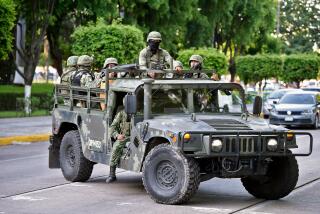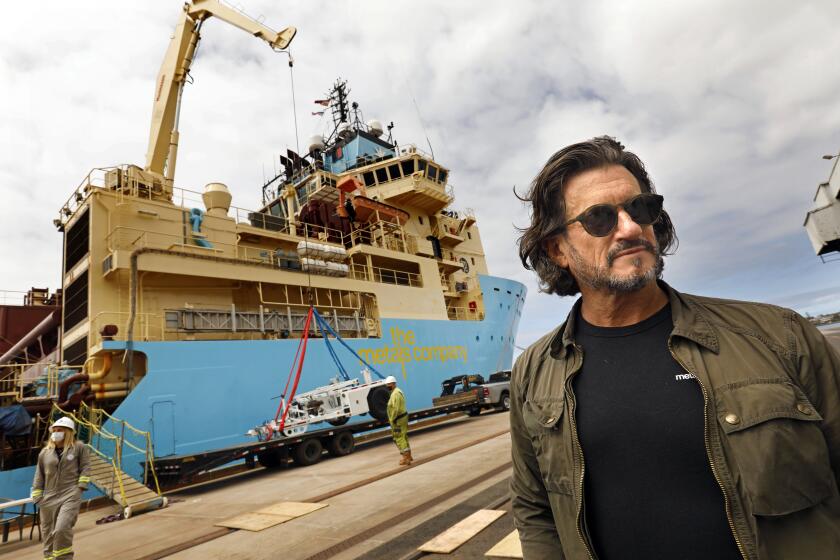Informant Puts CIA at Ranch of Agent’s Killer
The Central Intelligence Agency trained Guatemalan guerrillas in the early 1980s at a ranch near Veracruz, Mexico, owned by drug lord Rafael Caro Quintero, one of the murderers of U.S. drug agent Enrique Camarena, according to a Drug Enforcement Administration report made public in Los Angeles.
The report is based on an interview two Los-Angeles based DEA agents conducted with Laurence Victor Harrison, a shadowy figure who, according to court testimony, ran a sophisticated communications network for major Mexican drug traffickers and their allies in Mexican law enforcement in the early and mid 1980s.
On Feb. 9, according to the report, Harrison told DEA agents Hector Berrellez and Wayne Schmidt that the CIA used Mexico’s Federal Security Directorate (DFS) “as a cover, in the event any questions were raised as to who was running the training operation.”
Harrison also said that “representatives of the DFS which was the front for the training camp were in fact acting in consort with major drug overlords to ensure a flow of narcotics through Mexico into the United States.”
At some point between 1981 and 1984, according to Harrison, “members of the Mexican Federal Judicial Police (MFJP) arrived at the ranch while on a separate narcotics investigation and were confronted by the guerrillas. As a result of the confrontation, 19MFJP agents were killed. Many of the bodies showed signs of torture; the bodies had been drawn and quartered.”
In a separate interview on Sept. 11, 1989, Harrison told the same two DEA agents that CIA operations personnel had stayed at the home of Ernesto Fonseca Carrillo, one of Mexico’s other major drug kingpins and an ally of Caro. The report does not specify when this occurred.
Harrison testified at the Camarena murder trial that he lived at Fonseca’s house for several months in 1983 and 1984 when he was installing radio systems for the drug lord. He also has told the DEA that on several occasions he served as a guard on Fonseca’s drug convoys, “using his Gobernacion (Mexico’s Interior Ministry) credentials.”
The DEA report, which was completed in February, does not state specifically whether CIA officials knew who owned the ranch where the Guatemalans were being trained, why Guatemalans were being trained or whether marijuana was being grown there.
Asked about the allegations, CIA spokesman Mark Mansfield said Wednesday: “The CIA does not engage in drug-running activities.”
Caro had vast marijuana plantations in other parts of Mexico. He also is known to have had close ties with officials of various Mexican law enforcement agencies, including the DFS, a police agency that was riddled with drug-related corruption, One of the primary interrogators of Camarena when he was tortured at Caro’s Guadalajara home in February, 1985, was Sergio Espino Verdin, a former DFS commander.
The DEA reports became available Tuesday night after U.S. District Judge Edward Rafeedie ordered federal prosecutors to turn them over to defense lawyers in the Camarena murder trial, which is nearing the end of its seventh week.
Caro, Fonseca and Espino are serving prison terms in Mexico after being convicted there on charges stemming from the kidnapping and murder of Camarena. Four men, three Mexicans and a Honduran, are on trial in Los Angeles over their alleged involvement in the Camarena murder. In 1988, three others were convicted on charges growing out of the murder.
This is not the first time that questions about the CIA have been raised in the Camarena case. During the first trial, defense lawyers attempted unsuccessfully to introduce evidence about alleged links between the CIA and Mexican drug kingpin Miguel Angel Felix Gallardo.
Last month, a lawyer for defendant Juan Ramon Matta Ballesteros was spurned by Rafeedie in his efforts to obtain a report he claims was compiled by the DEA on the relationship between Felix and the CIA. Rafeedie said defense lawyer Martin R. Stolar was engaged in “a fishing expedition.”
In light of the newly released reports, Stolar vowed Wednesday to renew his request to Rafeedie this week.
Also last month, defense lawyer Mary Kelly tried to question Harrison over his knowledge of any ties between Mexican traffickers and the CIA. But Rafeedie prohibited Harrison from answering. Kelly contends that if the traffickers were acting with CIA license, it could provide a possible defense for her client, Juan Jose Bernabe Ramirez, a Fonseca bodyguard.
Harrison also told the DEA agents in September that in June or July, 1987, he was asked by an American man in Guadalajara--who he believed worked for the CIA--what information he had given the DEA about CIA operations in Mexico. Harrison said he told the man “you guys (CIA) are working with the traffickers . . . We ( Gobernacion and the Mexican intelligence community) know that the CIA are supplying guns to Nicaragua.”
The American, identified in the report only by the name Dale, “nodded his head in an affirmative manner saying yes I know,” the report said.
Numerous sentences in the DEA reports have been censored, including Harrison’s name. The information is known to have come from Harrison because lawyers for defendant Ruben Zuno Arce asked Rafeedie to order the government to give them DEA interviews of Harrison that had not been provided earlier.
Both reports that have references to the CIA are stamped “SECRET, NO FORN,” which sources said referred to no foreign distribution.
Harrison has testified that he decided last September to become a government witness in the Camarena case. He and his family have been relocated from Mexico for security reasons, according to government documents and his testimony.
On the witness stand, Harrison said that he audited classes at UC Berkeley in the late 1960s, first went to Mexico in 1968 at the height of a student rebellion there and settled in that country in 1971. Several defense lawyers in the case said they thought Harrison had been a CIA operative, but he denied ever having worked for a U.S. government agency.
More to Read
Sign up for Essential California
The most important California stories and recommendations in your inbox every morning.
You may occasionally receive promotional content from the Los Angeles Times.





